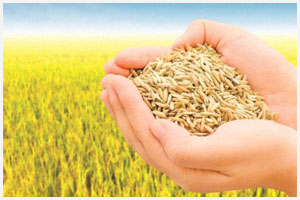
Good Agricultural Practices, agricultural chemicals that do not contain chemical, microbiological, physical residues harmful to human health, produced without polluting the environment or damaging the natural balance; It is the production method which is made in accordance with all these processes by being recorded and controlled and certified. Good Agricultural Practice encompasses all stages of production and marketing, ranging from soil to table.
Retailers, who dominated the majority of the fresh fruit and vegetable market in Europe, came together under the name EUREP in 1997 to minimize certain risks that threaten human health in recent years in the supply of fresh fruit and vegetable products to consumers. they established EUREPGAP standards, which form the basis of today's Good Agricultural Practices. The Eurepgap standard was revised in 1999 and accepted by all the countries of the world and named GLOBALGAP. With this protocol, retailers; They demand assurance from the suppliers and therefore the producers that the product they put on their shelves will not harm their customers. The Working Group did not remain vacant after the publication of this protocol, and subsequently established the EUREPGAP Technical and Standards Committee in 2007. This committee also carried out studies to check the compliance of agricultural products with the specified protocol rules and to carry out certification procedures. When the studies were completed, Good Agricultural Practices certification procedures were initiated.
Turkey is located in the Ministry of Agriculture based on the same principles not indifferent to these developments, the Good Agricultural Practice Regulations yayınlamıştır.artık Turkey has begun to implement a set of standards for agricultural shaping the agricultural sector. The Good Agricultural Practices Regulation was first published in the Official Gazette dated 08.09.2004 and numbered 25577. The Good Agricultural Practices Regulation was later revised on 7 December 2010 and became a more comprehensive set of standards.
It has spread around the world with different names such as ChileGAP, ChinaGAP, JGAP (Japan). Later, EUREPGAP changed its name to GLOBALGAP in 2007. As of 2007, 80 thousand producers in 80 countries have obtained Good Agricultural Practices Certificate. EUREPGAP certificate is required for agricultural product exports from our country to European Union countries.
In European Union countries, Good Agricultural Practices standard 5 is applied in different fields:
1.Fresh Fruit and Vegetable Certificate of Good Agricultural Practices
2.Flower and Ornamental Plants Good Agricultural Practices Certificate
3.Integrated Agricultural Enterprise System Assurance Certificate
4.Integrated Fisheries System Assurance Certificate
5.Coffee (Green) Good Agricultural Practices Certificate
With Good Agricultural Practices in agricultural production, it has helped to develop policies that provide economic, socially livable, environmentally friendly and sustainable development in the global sense in solving food safety problems. In this way, integrated combat principles and integrated product management principles have been put forward and the use of chemicals in agri-food production, halting environmentally damaging practices and thus long-term agricultural production have been achieved.